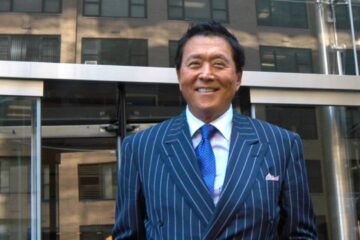After a wild period before and after the official purchase of Twitter, the company’s new CEO settles on a request he has of the microblogging site’s users.
It’s been just over a month since Elon Musk officially took over Twitter and it’s been a wild chaotic ride, even before day one. And now Musk is pleading with the site’s readers for one simple thing.
It wasn’t that long ago, on April 5, when Musk made public the fact he had bought about 9% of Twitter’s shares. Soon after, Musk was offered a seat on the company’s board of directors under the condition he would not purchase more than 14.9% of its shares and undergo a background check.
Musk then turned down the board seat and instead offered to buy Twitter for $44 billion, well above the company’s market value. He trumpeted free speech principles as his rationale for the move.
On April 25 Twitter accepted the offer. Musk then said on May 13 he was putting the purchase bid on hold, saying he wanted more details about the amount of spam and fake accounts on the microblogging site.
Twitter then said it was closing on the purchase agreement anyway as it was legally binding. The next few months seemed to be moving toward an October trial that would settle the dispute.
A judge gave the two sides until the end of the month to put a deal together.
The Deal Finally Becomes Official
On Oct. 27 the purchase was completed for the amount of the original Musk offer.
The next day, he fired Twitter’s CEO, CFO and other executives. Then came the workforce reduction layoffs. Some 3,700 people were let go, about half of the company’s employees.
Many Twitter workers found out their jobs were gone in unceremonious fashion. Some were simply unable to log in to their laptops while others received the news by virtue of being locked out of their Slack accounts.
Musk then offered Twitter employees an ultimatum on Nov. 16. He sent an email to all employees that said they will be required to work long, hardcore hours and that they must consent to these conditions. If they did not, they would lose their jobs and immediately receive three months of severance.
“Going forward, to build a breakthrough Twitter 2.0 and succeed in an increasingly competitive world, we will need to be extremely hardcore,” Musk wrote in the email. “This will mean working long hours at high intensity. Only exceptional performance will constitute a passing grade,” the billionaire wrote.
More than a thousand employees left the company and took the severance.
Musk also tried to begin charging for access to Twitter Blue, and then decided to suspend the program when users would nefariously pay for the user authentication designation just to impersonate other people.
Twitter restored former President Donald Trump’s account on Nov. 19. A controversy involving antisemitic posts from Ye (formerly Kanye West) on his restored Twitter account is ongoing, including a swastika image he tweeted that got his account suspended again.
Advertisers paused doing business with Twitter as concerns about a rise in hate speech on the platform mounted.
Musk accused Apple of threatening to remove Twitter’s App from its App Store. Then he took the accusation back, saying Apple never considered doing that.
He has also suggested that Twitter had, in the past, interfered with elections. But he hasn’t provided specifics or evidence.
Musk’s New Request of Twitter Readers
After all the turmoil in November and before, Musk has a simple plea for readers of Twitter posts now that December has arrived.
“I meet so many people who read Twitter every day, but almost never tweet,” he writes. “If I may beg your indulgence, please add your voice to the public dialogue!”
He followed that post with a couple other notes clarifying future moves he plans on making with the Twitter site.
“Twitter will start showing view count for all tweets, just as view count is shown for all videos,” reveals @elonmusk. “The system is far more alive than it would seem.”
“The problem is that likes are public, subjecting people to criticism, and ‘like’ is often the wrong description, as you often just think something is interesting or notable, but not likable. We need to add these critical distinctions,” he writes.


